
A Phone Message About a Series of Events p.24
Expressing Amazement*
Pronunciation: ng /ŋ/
A Travel Blog p.28
What’s your favorite place to visit?
Why is it not OK to take home objects you find in nature as souvenirs?
A Planet of Extremes
of Niam p.34
Around the World: My Inspiration p.38
3.2 Art: Then and Now
A Blog: Living With Less p.44
Math: Happy to Help! p.48
4.2 Helping Hands
A Dialogue About Artists in Buenos Aires p.36
Asking for and Giving Clarification p.40
Pronunciation: ea /iː/

A Description of a Painting*
Do you believe public art can influence people to study and learn?
A Dialogue About Shopping p.46
Giving and Taking Advice*
Pronunciation: Linking Sounds
A Post for the School Blog p.50
Do you think people in houseboats have good lives?
What is the perfect lifestyle for you?
Cambridge University Press & Assessment 978-1-009-22017-0 Game Changer Level 2 Student's Book and Workbook with Digital Pack Series: Game Changer Table of Contents More Information www.cambridge.org © in this web service Cambridge University Press & Assessment CONTENTS * This material can be downloaded from the Digital Resource Pack. UNIT VOCABULARYGRAMMARREADINGLISTENING SPEAKING AND PRONUNCIATION WRITING CRITICAL THINKING Welcome! p.4 1 Live It Up! p.9 1.1 Festivals for Everyone Long and Short Adjectives 1 p.10 Festivals and Celebrations p.14 Comparatives: Short Adjectives p.13 Comparatives: Long Adjectives, (not) as as p.15 Blog Posts: Liz Travels p.12 Around the World: Las Fallas Festival p.16 1.2 Fantastic Fireworks A Description of a Festival p.14 Making and Accepting Suggestions p.18 Pronunciation: have to /'hæf te/ A Review of a Festival* What kind of things do people celebrate? What’s your favorite celebration? Why? 2 Amazing Places p.19 2.1 Natural Wonders Long and Short Adjectives 2 p.20 Extreme Weather p.24 Superlatives: Short Adjectives p.23 Superlatives: Long Adjectives p.25 A Magazine Article: Earth Has It All p.22 Science and the Environment: White Sand Beach? Not This One! 2.2
Review p.29 3 The Art of Emotions p.31 3.1 The Feeling of Color Personality Adjectives p.32 Art p.36 Gerunds p.35 Regular Adverbs of Manner p.37 A Newspaper Article: Autistic and Artistic: The Story
4 Lifestyles p.41
Shopping
p.46
4.1 Living Differently Shopping 1 p.42
2
Countable and Uncountable Nouns p.45 Quantifiers p.47
Review p.51
Making and Reacting to Arrangements p.84
Pronunciation: want to /'waː.ne/ and going to /'gaː.ne/
8 One World p.85
8.1 One World, One Culture?
Review p.95
Immigration p.86
Words with Prefixes p.90
7.2
Defining Relative Clauses with who and that p.89
Non-defining Relative Clauses with who and which p.91
A “Future Me” Letter p.88
Social Studies: Is Immigration Good For a Country? p.92
8.2
Food on the Move
Audio Messages p.90

Describing Places*
Pronunciation: Stressed Syllables
A Biography p.72 What makes a person extraordinary? Who is an extraordinary person for you?
A Review*What is your favorite free-time activity? Why do people need entertainment?
An Email p.94 Why do people decide to leave their countries?
Cambridge University Press & Assessment 978-1-009-22017-0 Game Changer Level 2 Student's Book and Workbook with Digital Pack Series: Game Changer Table of Contents More Information www.cambridge.org © in this web service Cambridge University Press & Assessment UNIT VOCABULARYGRAMMARREADINGLISTENING SPEAKING AND PRONUNCIATION WRITING CRITICAL THINKING 5 Let’s Talk. p.53 5.1 Do you speak emoji? Communication 1 p.54 Communication 2 p.58 Simple Future p.57 Future with be going to (Affirmative) p.59 A Magazine Article: The Future of Communication p.56 Around the World: Is Sign Language Universal? p.60 5.2 A World of Words A Dialogue About Apps p.58 Communicating What You Want to Buy p.62 Pronunciation: Schwa /e/ An Opinion Paragraph* How many different ways can people communicate? What do you think are good ways of communicating? 6 Extraordinary Lives p.63 6.1 Extraordinary People Occupations p.64 Adjectives to Describe People p.68 Future with be going to (Affirmative, Negative, Yes/ No Questions, Short Answers, and Wh–Questions) p.67 Intensifiers p.69 An Email: Dear Dad p.66 Ethics: Great Power p.70 6.2 Becoming the Best An Interview With a Teacher p.68 Expressing Agreement* Pronunciation: that’d /ðæted/
Review p.73 7 This is fun! p.75 7.1 Entertainment on Screen Video Channels p.76 Free-time Activities p.80 Polite Offers:
to
to p.79 Present Progressive for Future Plans, Appointments, and Arrangements p.81
would like
/ would love
An Instant Message Chat p.78
Around the World: My Reading Journal Blog: The Cracked Pot p.82
The Magic of Bollywood A Voice Chat About Free-time Activities p.80
Culture and Cross-curricular p.97; Puzzles & Games p.102; Projects p.106
Reading:
Cambridge University Press & Assessment




978-1-009-22017-0 Game Changer Level 2 Student's Book and Workbook with Digital Pack Series: Game Changer Excerpt
WELCOME!
PLACES IN TOWN AND PREPOSITIONS OF PLACE


0.01 Look at the map and complete the words for places in town. Listen, check, and repeat.

0.02 Look at the map again and choose the correct options. Then listen to the dialogue and check.
1 The skatepark is behind / in front of / next to the stadium.
2 The restaurant is behind / in front of / next to the skatepark.
3 The mall is between / behind / in front of the park.
4 The movie theater is next to / inside / between the mall.
5 The bowling alley is inside / between / behind the grocery store and the clothes store.

6 The grocery store is on the left of / inside / on the right of the bowling alley.
SUBJECT, OBJECT, AND POSSESSIVE PRONOUNS

LOOK!
Remember: never omit object pronouns.
Complete the sentences with the correct subject, object, or possessive pronoun.
1 His name is Mario.
2 I always want a drink after basketball, so my dad buys a soda.
3 Victoria’s mother called on the phone, but she didn’t answer.
4 Mark, this is not your pen. It’s . Look, here’s my name.
5 They have a new teacher. Mr. Suares teaches English now.
6 You and I are tired. need to rest.

7 I’m certain this is your bike. Yes, look, it’s definitely

www.cambridge.org © in this web service Cambridge University Press & Assessment
More Information
1 g rocery s
2 b a 3 c s 4 p 5 m 6 m t 7 r 8 s 9 s 1
tore
! 3
2 1 2 3 4 5 6 8 9 7
Cambridge University Press & Assessment

978-1-009-22017-0 Game Changer Level 2 Student's Book and Workbook with Digital Pack Series: Game Changer
4 take the bus


5 have lunch at home
6 listen to music
Brazilian people love to eat 1 rice and 2 .

Many Japanese people eat 3 and 4 in the same meal.
I made a delicious drink from
I love the combination of 7 and 8 on a Hawaiian pizza.
0.04 Look and number the words. Then listen, check, and repeat.

Excerpt More Information © in this web service Cambridge University Press & Assessment Complete the sentences with the words below. Then listen, check, and repeat. • beans • carrots • cheese • chicken • fish • orange juice • pineapple • rice FOOD
A D B E C F b d
to the mall
ADVERBS OF FREQUENCY
Make questions with how often to ask a partner. Use the prompts. 1 go
How often do you go to the mall?
2 play soccer
1
3 read in bed
5 and 6
4 bus 5 boat 6 car
3 1 motorcycle A 2 airplane 3 subway
WELCOME
Cambridge University Press & Assessment

978-1-009-22017-0 Game Changer Level 2 Student's Book and Workbook with Digital Pack Series: Game Changer

Excerpt More Information
SIMPLE PAST OF VERB TO BE





Put the words in the correct order to make questions.
1 your / good / weekend / was / ?
Was your weekend good?
2 your / was / school / yesterday / at / best friend / ?
3 cafeteria / this morning / the / were / they / in / ?
4 and your family / at / on / were / Sunday / the beach / you / ?
5 year / teachers / the same / last / your / were / ?








SIMPLE PAST OF REGULAR AND IRREGULAR VERBS
Great Location, Amazing Facilities
Bersantai is a beautiful hotel and it 1 didn’t disappoint (not disappoint) me. I 2 (stay) there for two weeks in March.We 3 (eat) delicious food at the hotel restaurant.We 4 (not go) to the spa, but we 5 (relax) by the swimming pool.We 6 (walk) on the beach and we 7 (go) to the stores downtown. My brother 8 (take) cool photos at Mengiat Beach. I 9 (not sleep) well on the first day because it was very hot. But then the weather 10 (change) and it was perfect.
11 I (like) it? I 12 (love) it! We 13


PERSONALITY ADJECTIVES AND FEELINGS

(have) a great time there.
0.05 Circle the correct word to complete the sentences. Then listen, check, and repeat. 3
She’s really bored / boring / funny


She is surprised / angry / strong.He was very brave / friendly / tired
She’s really sad
www.cambridge.org © in this web service Cambridge University Press & Assessment
Complete the review with the correct simple past form of the verbs in parentheses. 2
1 4 2 3 5
6
/ excited / clever!
Michael is so amazing / happy / lazy! This is a worried / kind / funny
picture.
1
Cambridge University Press & Assessment

978-1-009-22017-0 Game Changer Level 2 Student's Book and Workbook with Digital Pack Series: Game Changer Excerpt More
NATURE
0.06 Find ten nature words and label the images. Then listen, check, and repeat. 1




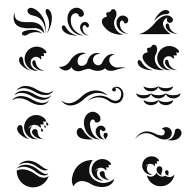


FHILLNCG VIFLOWER IUEEBBLA LSALYBAS LECDDIKS
PAST PROGRESSIVE
0.07 Complete the sentences. Use the correct forms of the verbs below. Then listen and check.
• look • not wear • show • sit • sleep • watch • wear
It was 10 o’clock last night. I 1 was watching some online videos. My parents
2 . I got a message from my friend Sara. She 3 for her school jacket, but she couldn’t find it. “I 4 my jacket at school today, right?” she asked me. “Yes, you were,” I answered. “But you took it off in the classroom.” She then asked, “I 5 next to Regina and Isabel, right?” “Yes, that’s right,” I replied. “At the end of the last class, you 6 them pictures on your cell phone and they
7 their jackets,” I answered. “Maybe one of them took your jacket by mistake.”
Complete the questions with the correct past progressive form of the verbs below. Then match 1–5 with a–e.
• drive • live • shout • talk • watch
1 Were you watching TV last night? b
2 your mother to you?
3 we yesterday evening?
4 he to work at 9 a.m. today?
5 they in Spain in 2020?
a Yes, she was. She was telling me about her day.
b No, I wasn’t. I was studying for a test.
c No, we weren’t. We were just talking loudly.
d Yes, they were. They had an apartment in Madrid.
e Yes, he was. He missed the bus this morning.
www.cambridge.org © in this web service Cambridge University Press & Assessment
Information
2 3
AAJDAREA GTREEDVU ERCOASTI WELCOME
Cambridge University Press & Assessment

978-1-009-22017-0 Game Changer Level 2 Student's Book and Workbook with Digital Pack Series: Game Changer
3

0.08 Look at the images and label the pictures with the weather words below. Then listen, check, and repeat.



PAST PROGRESSIVE AND SIMPLE PAST
Complete the chart. Use the correct forms of the verbs below. • arrive • call • wait • watch
Past Progressive and Simple Past

when We 1 a movie when the pizza 2 while Michael 3 me while I 4 for him at the station.
0.09 Complete the sentences. Use the correct forms of the verbs in parentheses. Then listen and check.
1 He was texting his friend when his phone died . (text/die)
2 He his bike when he . (ride/fall)
3 She with her cake when she it. (walk/drop)
4 Their car down while they home. (break/drive)
5 She her homework while her cat . (do/play)
6 I an email while my brother . (send/draw)

Excerpt More Information www.cambridge.org © in this web service Cambridge University Press & Assessment
• cloudy • foggy • rainy • stormy • sunny • windy 1 THE WEATHER
1 4 2 3 5 6 stormy
2
UNIT GOALS





• Talk about festivals and celebrations.
• Read about some festivals around the world.

• Listen to a dialogue about a festival.






• Learn about the Las Fallas festival.
• Make and accept suggestions.
Cambridge University Press & Assessment 978-1-009-22017-0 Game Changer Level 2 Student's Book and Workbook with Digital Pack Series: Game Changer Excerpt More Information www.cambridge.org © in this web service Cambridge University Press & Assessment 1.1 1 VIDEO 1 What special things do festivals celebrate? Name three. 2 Where do people celebrate La Guelaguetza? THINK! 1 Look at the photo. What do you think the people are celebrating? 2 What kind of things do people celebrate? UP!
LIVE IT
Cambridge University Press & Assessment





978-1-009-22017-0 Game Changer Level 2 Student's Book and Workbook with Digital Pack Series: Game Changer Excerpt More Information
LONG AND SHORT
ADJECTIVES 1

Read the tweet. Then match the words in bold with their opposites 1–5 and label the images.
At a Festival

I’m at the Holi Festival. I love it! It’s very lively.People celebrate with colored powder and some unusual food. The streets are crowded with people. It’s a lot of fun and very noisy! It brings color to a dull day! Do you know any similar festivals?



www.cambridge.org © in this web service Cambridge University Press & Assessment
1 VOCABULARY IN CONTEXT quiet traditional 4 5 calm 1 lively empty 2 exciting 3
2
1.01 Listen, check, and repeat.
Jan 5 31 reply
favorite
more ➔
Maxine Taylor @taylormax111
follow
| send |
|
Cambridge University Press & Assessment

978-1-009-22017-0 Game Changer Level 2 Student's Book and Workbook with Digital Pack Series: Game Changer Excerpt More Information
It feels very calm in our neighborhood when the street is of traffic and people.

The food at the festival was strange – it was very . It was really to try a lot of new dishes.

It’s really here! I can’t hear you! Your voice sounds very – you need to shout!
The review said, “The movie is full of music,” but it was so we left before the end.

USE IT!
The square wasn’t
, so we could enjoy the dances and colorful costumes.

Complete the chart with the words from Exercise 3. Then compare your answers with a partner. Positive IdeaNeutral IdeaNegative Idea calm
Work in pairs. Take turns asking what your partner thinks about a festival or celebration in your country and answer using the words in Exercise 3.

What do you think about Carnival?
I think it’s exciting! It’s …
www.cambridge.org © in this web service Cambridge University Press & Assessment Look at the images and complete the sentences with the words below. • calm • crowded• dull• empty• exciting • lively• noisy• quiet• traditional• unusual 3
5
1 3 5 2 4
4
UNIT 1
Cambridge University Press & Assessment

978-1-009-22017-0 Game Changer Level 2 Student's Book and Workbook with Digital Pack Series: Game Changer
Excerpt More Information
READING
Look at the images and posts. Check (✓) the correct answers.



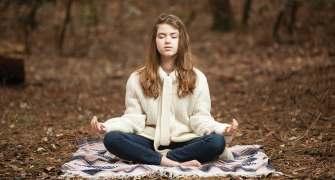



1 Which of these activities does Liz write about? travel to different countries be in silence go to an amusement park watch wild animals
2 Who is Liz? a scientist studying marine animals a student enjoying her vacation a person promoting a competition
Remember my trips to South Africa and Indonesia earlier this year? This is your chance to win a free trip for two to one of these countries! Just follow me at @liztravels, post a photo, and include the hashtag #pickmeLizTravels (competition ends December 20). Good luck!
liked by Jenna Martin and 12,579 others. There are 45 comments in total.
Guess where this is? South Africa! I went to the annual Hermanus Whale Festival, a three-day festival dedicated to a special type of whale: the southern right whale! How big or small are they? Well, this species is bigger than humpback whales and smaller than blue whales. You can go on a boat to get close to the whales. This is called whale watching. I learned so much about why we need to protect whales. Did you know that whales can live to be 100 years old?
liked by Cory Stanton and 6,167 others. There are 34 comments in total.
I took this photo while I was in Bali, Indonesia, in total silence. People there celebrate the New Year for six days in March or April. New Year in Indonesia is later than New Year in the USA. Day three of the celebrations is called Nyepi (the Day of Silence) and there’s no electricity, no traffic, no work, and no school for 24 hours. It’s a day of purification. Being quiet isn’t easy, but it’s easier than you think! A er several hours, I felt calmer than I was before. And I loved it!
liked by Taylor Smith and 4,621 others. There are 20 comments in total.
1.02 Read and listen to the posts. Which festival do the sentences describe? Write H (Hermanus Whale Festival), N (Nyepi), or B (both).
1 People celebrate it in March or April. N
2 This is a festival that happens every year.
3 You can see animals in their natural habitat.
Read the posts again and answer the questions.
1 What do you have to post to enter Liz’s competition? a photo

2 Which species of whale do people see at the Hermanus Whale Festival?

THINK!
4 It’s a quiet celebration.
5 The celebration is one day.
3 Do people celebrate Nyepi at the beginning of their New Year celebrations?
4 Can people take the bus during Nyepi?
What’s your favorite celebration? Why? Do you want to travel like Liz? Why / Why not?
www.cambridge.org © in this web service Cambridge University Press & Assessment
1
2
3
LIZ TRAVELS, in New York, USA
LIZ TRAVELS, in Hermanus, ZA
LIZ TRAVELS, in Bali, ID
Cambridge University Press & Assessment

978-1-009-22017-0 Game Changer Level 2 Student's Book and Workbook with Digital Pack Series: Game Changer
Excerpt
More Information
UNIT
Look at the examples and the LOOK! box below. Complete the sentences from the posts on page 12.
Comparatives: Short Adjectives
It's 1 bigger than the humpback whale.
They're 2 than blue whales.
New Year in Indonesia is 3 than New Year in New York.

Total silence isn't easy, but it's 4 you think!
Circle the correct options.
1 A car is big / bigger than a bike.
2 A bike is cheap / cheaper than a car.
3 My mom’s food is good / better than restaurant food.
4 My grandpa is old / older than my grandma.
5 My cousin’s dog is quiet / quieter than mine.
6 You look happy / happier than your friend today.
LOOK! Irregular Comparatives bad – worse good – better far – farther
Regular Comparatives
small – smaller late – later big – bigger
Look at the adjectives for each festival. Match the opposite adjectives and write sentences to compare the two festivals.
1
LANGUAGE IN CONTEXT USE
Compare
Carnival – Venice, ItalyAoi Festival – Kyoto, Japan

1 big d
a calm
b old
c quiet
d small
e short
www.cambridge.org © in this web service Cambridge University Press & Assessment
2 3 4 5 1 2 3
The Venice Carnival is bigger than the Aoi Festival. The Aoi Festival is smaller than the Venice Carnival.
IT!
two famous festivals in your country with a partner. 4 Yes, and it’s …
The Rio de Janeiro Carnival is older than the Parintins Folklore Festival.
2 lively 3 long
4 new 5 noisy
1































































































































































































































































































































WORLD ONE 8

UNIT GOALS
• Talk about immigration.
• Read a letter to a future self.
• Listen to audio messages.

• Learn about immigration.

• Write an email.
THINK!
1 Are there any immigrants in your community? Where do they come from?

2 Why do people decide to leave their countries?
8.1 VIDEO





1 Name two things from the video that are becoming more similar across the world.
2 What is helping to create a single global culture?
85
VOCABULARY IN CONTEXT

IMMIGRATION
Complete Femi’s story diagram with the words below.
• border • feel at home
• permanent residents
• immigrants
• reside
• live abroad
• visas
• passports

My Family’s Dream Trip to Canada


I come from a family of 1 immigrants . My grandparents were from Nigeria.


One day, they decided that they wanted to 2 .
They wanted to give their children a better life.
They wanted to
permanently in Canada. They wanted to become

WELCOME TO CANADA
They arrived at the 6 with their 7 and their dream of a new life.
After some time, they got their
They could leave Nigeria.
In the beginning, it wasn’t easy, but they 8 . in Canada now.
8.01 Listen, check, and repeat the words.
1
2
3
4
5
86
CANADA NIGERIA
Complete the diagrams with the words below.





• immigrants • live abroad

Objects/Places
1 passports
• passports
People




• reside
• visas
3 . show them at the border Verbs







can become a permanent resident
4

feel at home 5
in another country
Complete the sentences with the words from Exercise 1. Use the singular form of the nouns.


1 Today my mother got her passport and .
2 Juan and Laura decided to leave Portugal and go to ten years ago. Now they really in Chile.
3 Every needs to show his or her documents at the




4 My brother wants to in Quebec, Canada. He wants to become a in the future.
USE IT!
Check (✓) the information that is true for you. Correct the false information. Then compare your information with a partner.


I have a passport.
I have a visa to the United States.

I live near the border with another country.
When I’m at my friend’s house I feel at home.
Some of my family lives abroad.
5
3
WORKBOOK p.141 PRACTICE EXTRA
4
2
and you will
87 UNIT 8
What feelings and expectations do you think a teenager has about going to live in another country? Discuss your ideas with a partner.

Dear Future Me, Mom has a new job. Great, right? Except, it’s in Australia! Yes, we’re leaving the United States to live on the other side of the world. So, when I open this letter three years from now, how will my life be? Will we be happy in Sydney? Will we still be there?
I feel really anxious. The guys who hang out with me at school support me a lot. They say Australia is an awesome place. The weather is warm. But I don’t know ... My hometown, Homewood, is an area that I feel safe in, and I can’t imagine life away from our home on Cedar Road, the library around the corner, the snow every winter ... Here I have friends that are always there for me, especially Sue and Greg. Will I ever see them again? Well, at least they say Australians also play the game that inspires me: basketball. We’ll see about that.
I’m going to do my best to be happy and help Mom, because this job is very important to her. Everything is going to be all right, but I’m sure I’m going to miss South Chicago. Please tell me I will be fine.
xoxo, Dinah
8.02 Read and listen to the text. Check (✓) the correct phrase to complete the sentence. In her letter to her future self, Dinah ... asks the reasons why she has to move to a land on the other side of the planet. expresses doubts about the future and sadness for the things that she will leave behind. shows anxiety because she knows life in a new country will be worse than in her hometown.
Read the text again. Then read the sentences and write T (true) or F (false).
1 Dinah and her mom are going to live in the capital of Australia. F

2 Dinah is going to destroy the letter before she leaves the US.
3 Dinah doesn’t enjoy sports.
4 The library is near Dinah’s house in the US.
5 Dinah’s mom will leave Homewood because of a work opportunity.
Check (✓) the best description of how Dinah feels about to going to Australia. dramatic and irrational negative and emotional optimistic and happy positive but sentimental
THINK!
What’s nice about writing a letter to yourself and opening it after a few years?




READING
2 3 4
1
88 WORKBOOK p.143
LANGUAGE IN CONTEXT
Look at the example and the LOOK! box below. Complete the sentences from Dinah’s letter.
Defining Relative Clauses with who and that
The guys support me a lot. The guys hang out with me at school. The guys 1 who hang out with me at school support me a lot. who is for people
Australians play the game. The game inspires me: basketball. Here I have friends. Friends are always there for me.
Match 1–5 with a–e.
1 My town's librarian is a person c
2 Sydney is a city
3 I have some friends
4 What’s the name of the sport
5 A letter to a future you is something
Australians play the game 2 inspires me: basketball. Here I have friends 3 are always there for me
that is for people, animals, and things
a who told me people play basketball in Australia.
b that you will open in the future.
c who always shows me good books to read.
d that you play every day?
e that is on the other side of the world.
Write one sentence using the two sentences and who or that.
1 They will move to a different region. The region offers job opportunities. They will move to a different region that offers job opportunities.
2 I met new people. The people speak English.
3 They need to find a company. The company has flights to Australia.
4 Our ancestors were brave people. They came from Europe.
5 Iceland is a great country. Iceland welcomes immigrants.
LOOK!
A defining relative clause gives essential details about a noun.
This is the letter that I wrote last year.
Work in pairs. Take turns describing the words below with a partner. • a cell phone • a person’s best friend • an immigrant • traveling abroad 4
An immigrant is a person who ...
IT!
USE
1 2 3
WORKBOOK p.140 and p.142 PRACTICE EXTRA 89 UNIT 8
LISTENING AND VOCABULARY
WORDS WITH PREFIXES
Dinah lives in Sydney now. She and her friend Greg from Chicago often communicate by phone. Check (✓) the words you think you will hear in their audio messages.

bike Chicago country here like
miss money school together weekend
8.03 Listen to the audio messages and check your answers.
8.03 Listen to the messages again. Write the opposite of words 1–6.
1 agree disagree
2 like
3 patient
4 possible
5 happy
6 kind
8.04 Listen, check, and repeat the opposites.
Read the sentences and write T (true) or F (false).
1 Dinah thought of Greg when she was standing in line. T
2 Greg and Dinah were at the Skydeck in Chicago last spring.
3 Dinah was right about her new life in Sydney.
4 Dinah now lives in a comfortable house.
5 Dinah is doing a lot of bike tours.
Complete sentences 1–3 using your own words. Then compare your sentences with a partner.
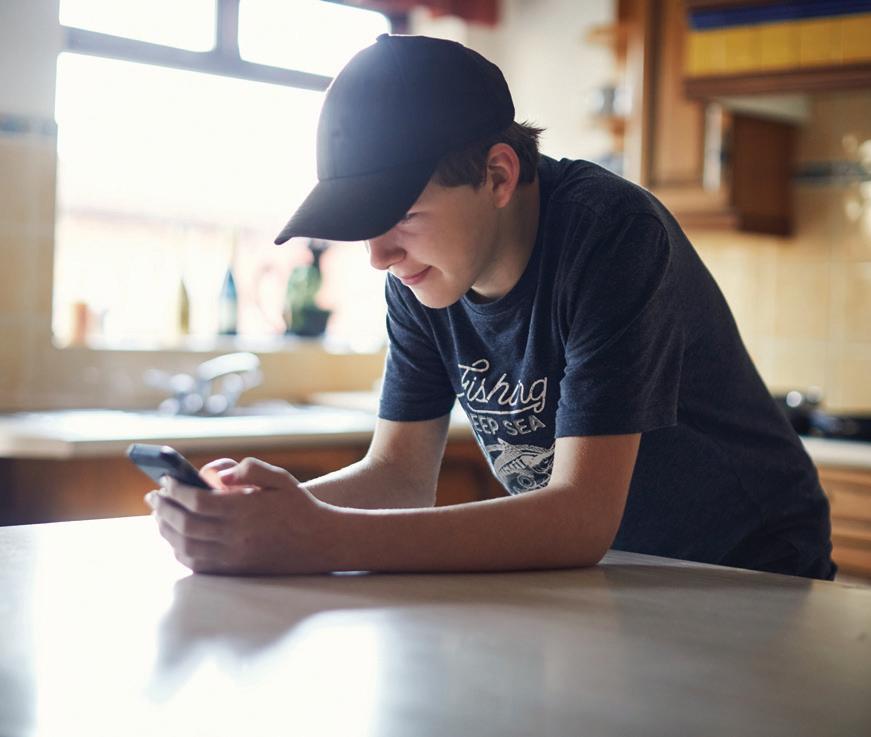
1 In general, people in my family dislike
2 I think it’s impossible to
3 My best friend becomes impatient when
1 2 3 4 5 6
90 WORKBOOK p.141
LANGUAGE IN CONTEXT
Complete the sentences from the audio messages in the chart using who or which. Use the LOOK! box to help you.
Non-defining Relative Clauses with who and which Greg, who lives in Chicago, is my best friend. Our apartment, which is in Sydney, is very comfortable.
We went up the Sydney Tower, 1 is the tallest building here, to take pictures. Sue, 2 really hates lines, had a bad moment.
Complete the sentences with non-defining relative clauses. Use the information below.
• He is a software designer.
• It has 110 floors.
• It is my favorite month.
• It is the biggest city in Australia.
• They come from all parts of the world.
1 Sydney, which is the biggest city in Australia , is on the east coast of Australia.
2 Willis Tower, , is the third tallest building in the US.
3 My father, , likes to play video games on weekends.
4 February, , has 29 days every four years.

5 Immigrants, , often learn new languages.

Write one sentence with a non-defining relative clause using the two sentences and who or which

1 Laura speaks English and Spanish. Laura lives in Australia. Laura, who lives in Australia, speaks English and Spanish.
2 Last week, I bought my new cell phone. The cell phone takes great photos.
3 My favorite cars are Ferraris. Ferraris are Italian.
4 Mr. Garcia is going to visit Peru next year. Mr. Garcia is my history teacher.
5 Greg sent me a text message. Greg loves social media.
USE IT!
4
LOOK!
Non-defining relative clauses give extra information about a noun. Use commas to separate the non-defining relative clause. Dinah, who is Greg’s friend, lives in Sydney.
Work in pairs. Describe the images 1–4 using non-defining relative clauses. Then compare your sentences with a partner.

1 2 3
My English dictionary My brother’s soccer ball
My cat Tabby
1 3 2 4 WORKBOOK p.140 and p.142 PRACTICE EXTRA 91 UNIT 8
My cousin Catalina
THE CURRICULUMACROSS
SOCIAL STUDIES


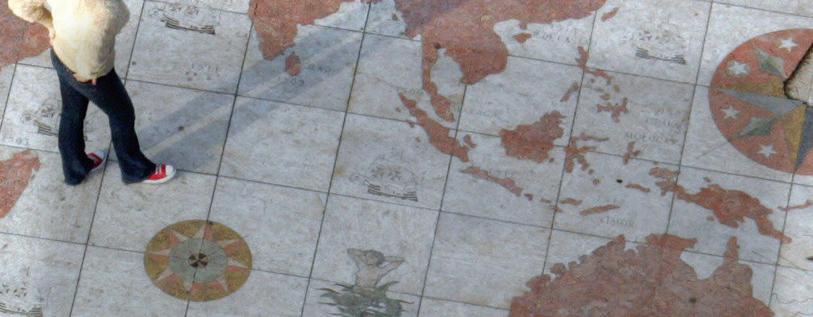

IS IMMIGRATION GOOD FOR A COUNTRY
?


 By Mark Dollen
By Mark Dollen
New people mean new ideas. Immigrants bring with them their own expertise, traditions, cuisine, and art. This contributes to a 1
enriches it.
2
Immigrants leave the south to go north, or the west to go east – they travel in all directions. Around the world, there are about 230 million people who left their home country, but no matter where they go, they always take their culture with them. And that is good! Sharing cultures makes countries richer in so many ways.
More people working can make the economy grow. Immigrants have different occupations and different types of jobs. Some start their own businesses.
Immigrants help the community by paying taxes, which the government uses to provide public services. 3

4





When immigrants cross borders, people share their distinct cultures and develop new friendships. All these are steps toward making a more integrated, open, and empathetic world.




People leave their countries for different reasons: to look for better work opportunities, to reunite with family, to follow a dream, to escape from a conflict. But in all cases, they are always looking for a better life.

92
Look at the title of the text and the images. Work in pairs. Discuss the questions.
1 What do you see in the images?
2 Student A: think of arguments to answer yes to the question in the title. Student B: think of arguments to answer no. Can you convince your partner?
8.05 Read and listen to the text. Does the author agree or disagree that immigration is good for a country? How do you know from the text?
Read the text again and answer the questions.
1 Which tradition in your community comes from a different culture?
2 What dish in your country comes from a different nation?
3 Do you agree with the statement, “Immigrants influence the language of a country”? If so, give examples.
4 What does the author mean by “an empathetic world”?
WORDS IN CONTEXT
4
Complete the sentences with the words below.
• cuisine • expertise • steps • taxes
1 My grandpa has a lot of in math.
2 The government will pay for new schools by increasing
3 We need to take to reduce pollution.
4 The restaurant specializes in Japanese

WEBQUEST
THINK!
Why is it sometimes difficult for people from different cultures to understand each other?
Learn more! Check (✓) True or False. France receives more immigrants than other countries.

True False
VIDEO
8.2
1 Why is traditional food important to most people?
2 List the dishes you remember from the video.
1 2 3 UNIT 8 93
8.06 Read and listen to the email. Who are George and Mustafa? Check (✓) the correct sentence.
George and Mustafa are probably old friends. George and Mustafa are probably new friends.
Read the email again. Check (✓) the reason for George’s email.
to help Mustafa find places to eat Turkish food to show Mustafa interesting places to have fun to help Mustafa become familiar with the neighborhood to make Mustafa feel comfortable in his new school

Match a–d with parts 1–4 of the email.
a greeting
b details about a specific place in town
c closing paragraph
d general description of the neighborhood
Study the LOOK! box. Then circle another greeting expression and underline the goodbye phrase in the email.
Write an email to a friend who is coming to visit you. Give information about your neighborhood. Use George’s email as a model.
1 Choose a friend to write to.
2 Collect information about your neighborhood.
3 Find or draw images to illustrate your email.

4 Write the first version of your email. Use vocabulary from Unit 8.
LOOK!
Use a warm greeting expression to say hello to your reader. Hi Mustafa!
End your email with a nice goodbye phrase. Be polite.







I’ll write to you again soon!
Switch your email with a classmate and check their work. Use the checklist below.
a warm greeting
clear paragraphs: general description of your neighborhood, details about a specific place, closing paragraph






a nice goodbye phrase





































































































































































defining relative clauses
Edit your email. Then publish it. Upload it to the class portfolio for everyone to see!

WRITING
1 2 3 4 5
PORTFOLIO 4 : 54 p.m. G
YOUR DIGITAL
6
15 94
October
REVIEW UNITS 7 AND 8
Put the letters in the correct order to make words for video channels and label the images.
• abeuyt • kicongo
• reewsvi • iencesc dan thec
• mgaing
• xiunbngo
• hlthea nad finetss
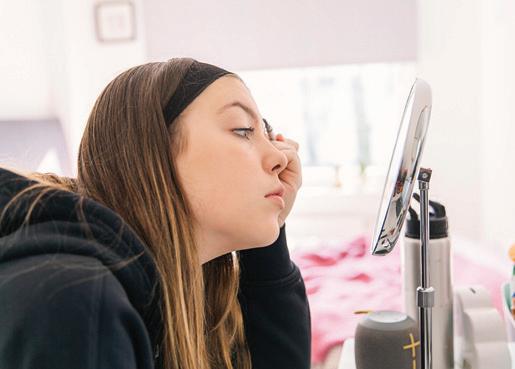
• vggerlo


Complete the sentences with the phrases below.
• eat out
• throw a party
• go to a concert
• watch series
• have a sleepover
• play in a band
1 Derek has tickets for Maroon 5. I really want to go to a concert !
2 Logan likes to with his parents. His favorite restaurant is The Duck.
3 I’m going to with all my cousins on Friday night. I need my pajamas!
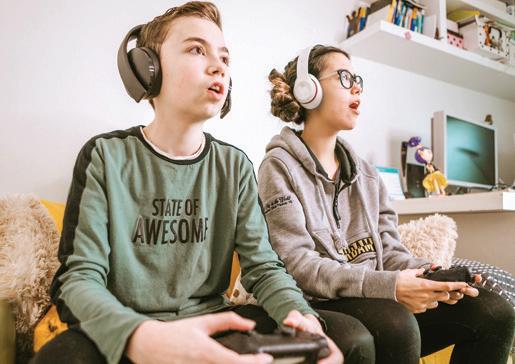
4 Jane is going to this Saturday for her birthday.
5 It’s a rainy day. I’m going to stay home and on TV.
6 Bel plays the guitar and sings very well. I guess she’s going to !
Choose the odd one out.
1 border / visa / reside
2 passport / permanent resident / immigrant
4


Complete the sentences with the correct opposites of the words below.
• agree • happy
• like
• kind
• patient
• possible
1 George is very unhappy . His parents are going on vacation without him.
2 The children with our decision. They don’t want to go and live in France.

3 This is . I can’t be in two places at the same time.
4 Yuri is so . He never thinks about other people.
5 My grandma was very after the operation. She wanted to go home.
6 Corinne and Josh clean the yard every week. They really doing it.

1
VOCABULARY 1 5 2 6 3 7 4 8
3 reside / border / feel at home
feel at home / live abroad / visa
2 3 4 gaming 95
LANGUAGE IN CONTEXT
Write affirmative sentences or questions using the prompts. Use ’d if possible.




1 I / would / love / see / a movie / on Saturday
I’d love to see a movie on Saturday.
2 she / would / like / eat / Japanese food?
3 he / would / like / be / in a video?
4 I / would / love / meet / your sister
Complete the sentences with the correct present progressive form of the verbs in parentheses.
1 She ’s going to a concert next Sunday. (go)
2 Theo a sleepover at his friend’s house on Saturday? (have)
3 Neil and Jenny out tonight with their friends. (eat/not)
4 Cassia a song from her new album on TV this evening. (play)
5 Bruno a surprise party for his parents on Thursday? (throw)
6 she to the theater with you? (go)
Complete the definitions with who or that.
1 bike (n) a vehicle that many children can use to go to school
2 best friend (n) a person is always there for you
3 mall (n) a place is full of customers, but they often don’t buy anything
4 chocolate (n) the food you need to make you feel better when your best friend isn’t around
Write one sentence with a non-defining relative clause using the two sentences and who or which.
1 Doris and Dan live in the country. They are happy children. Doris and Dan, who live in the country, are happy children.
2 Pete fixed my computer. He lives next door.
3 The dog was making a lot of noise. It is now quiet.
4 The border separates the two countries. It is closed.
Check your progress
I CAN...
• talk about video channels and free-time activities.



• use polite offers: would like to / would love to.















• talk about immigration.
• use defining and non-defining relative clauses.
Learn to learn
Opposites Using Prefixes
Prefixes change the meaning of words. Keep a record of them, their meanings, and some example words.
dis- (negation) disagree (not agree) dishonest (not honest)
5 6 7 8
96






















































































































































































































































































































































 By Mark Dollen
By Mark Dollen



















































